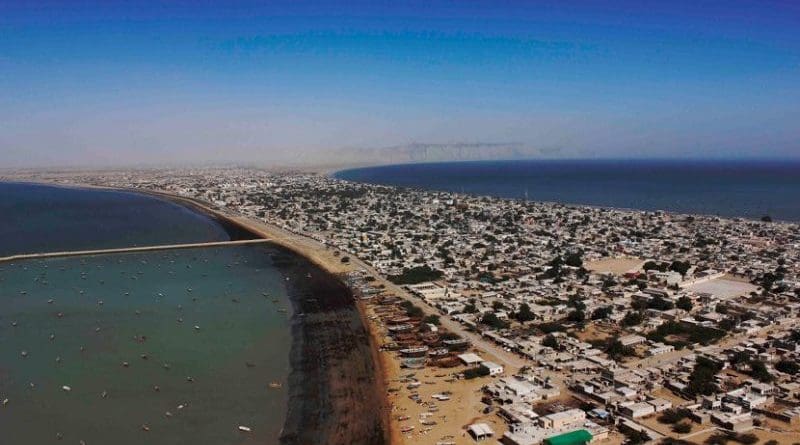Socio-Economic Development Of Balochistan Is Key For Pakistan’s Prosperity – OpEd
By Anam Iqbal
Pakistan’s diverse geography offering unique cultures and traditions is perhaps its biggest strength and weakness at the same time. The diversity of culture, language, arts, resources and socio-political history is strength while the failure to successfully integrate diverse communities is a weakness.
Balochistan is Pakistan’s largest province by land mass but only accounts for about 5% of Pakistan’s population. The province has immense strategic and economic importance, as it is situated on the Arabian Sea and borders Afghanistan and Iran. However, a concentrated and dedicated implementation is required to continue.
There is an acute understanding among Pakistan’s leadership that with a prosperous Balochistan, Pakistan cannot be successful. Currently, some of the major developmental projects are underway in Balochistan including multi billion dollars multinational projects such as CPEC and Reko Diq and host of capacity building initiatives.
China-Pakistan Economic Corridor (CPEC) is a flagship project of China’s Belt and Road Initiative (BRI), which aims to connect Asia, Europe, and Africa through a network of roads, railways, ports, and pipelines. CPEC is a multi-billion dollar project, which includes the construction of highways, railways, pipelines, and ports in Pakistan. The project is expected to create millions of jobs and boost economic growth in Pakistan. CPEC is a game-changer project, which has the potential to transform the economy of Pakistan and bring prosperity to Balochistan given the security and political stability is ensured.
Balochistan even after 75 years of independence remains remote and disconnected from the rest of Pakistan. CPEC will address these issues by building highways, railways, and ports, which will connect Balochistan with the rest of Pakistan and the world. This will facilitate the transportation of goods and services, and attract foreign investment in the province. The construction of highways, railways, and ports will require a large workforce, which will create jobs for the people of Balochistan. Moreover, the development of industries and the exploitation of natural resources will create more job opportunities in the province. This will help reduce poverty and improve the standard of living of the people in the province.
It is expected to improve the security situation, which has been marred by terrorism. The project will create economic opportunities, which will reduce the grievances of the local population and provide them with an alternative to violence. Moreover, the security of the project will be ensured by the Pakistani security forces which will make the province more secure.
The development of Gwadar Port is a key component of CPEC. Gwadar is strategically located on the Arabian Sea, which makes it an ideal location for a deep-sea port. The development of the port will create economic opportunities, such as shipping, warehousing, and logistics. Moreover, the port will attract foreign investment and facilitate trade with other countries, which will boost economic growth there.
The Reko Diq project is a critical component of the economic development of Balochistan. It will reduce Pakistan’s dependence on imports and improve the country’s balance of payments. The project will also attract foreign investment in the province, which will help exploit its vast natural resources and create more economic opportunities.
The Reko Diq is one of the largest copper and gold deposits in the world, estimated to contain over 5.9 billion tons of copper and gold ore. However, the Reko Diq project has been mired in controversy for several years, however, recently both parties has come to a mutual agreement to develop sustainable operations that will ensure success of the project and prosperity of the entire region.
Several key education enhancement projects have been initiated in Balochistan. Such as Education Support Program (ESP) initiated by the Government of Balochistan with support from the World Bank aimed at improving access to and the quality of primary and middle-level education in the province. Moreover, the Balochistan Education Sector Plan (BESP) is a comprehensive plan for the improvement of education in the province developed with the support of the United Nations Children’s Fund (UNICEF). In addition, the Balochistan Education Management Information System (BEMIS) project initiated by the Government of Balochistan with support from the European Union to improve the management of education in the province. Lastly, the Balochistan Education Foundation (BEF) is a non-profit organization established by the Government of Balochistan to improve access to education in the province.
Government of Pakistan has recognized the importance of vocational training institutes and technical training centers in the economic development of Balochistan. They have initiated several programs to promote technical and vocational education in the province, including the Prime Minister’s Youth Skill Development Program, the National Vocational and Technical Training Commission, and Technical Education and Vocational Training Authority.
However, the development of vocational training institutes and technical training centers in Balochistan faces several challenges. The province lacks the necessary infrastructure and funding to develop these institutions on a large scale. Additionally, the prevailing security situation in the province makes it difficult to attract foreign investment and businesses, which can hinder the development of a skilled workforce. But this is a work in progress, good work has been executed but the road starts here. Pakistani policy makers ought to continue to ensure provision of best possible service delivery to people of Balochistan.
The author is a Karachi based journalist and an independent researcher on socio-economic policy issues besides commentary on political economy. She has a Bachelor’s in Social Sciences from University of London and a Master’s in Development studies from PIDE and she can be reached at [email protected].

